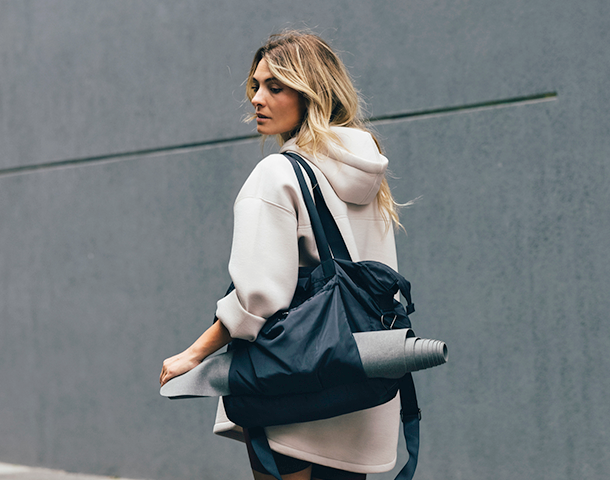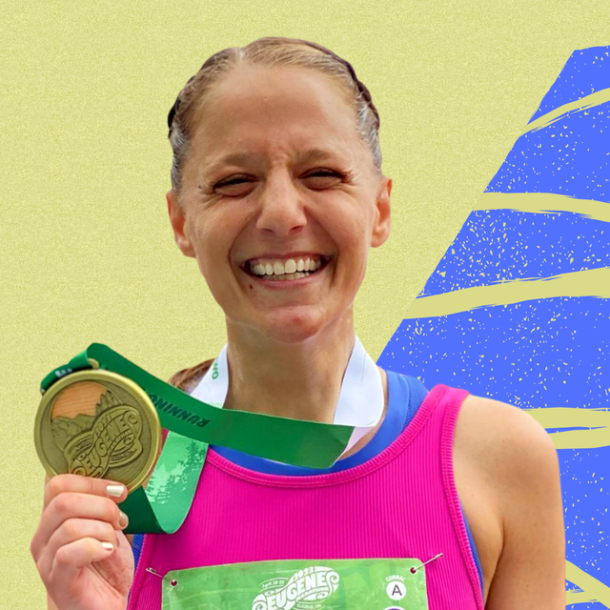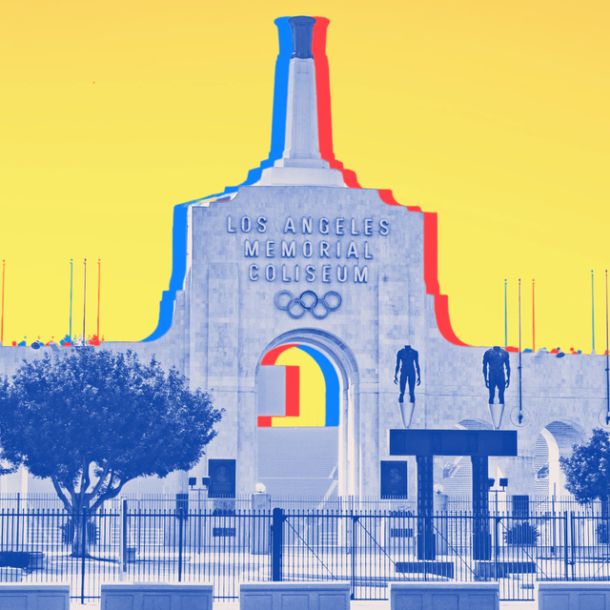
Women Won Big at the Paris Olympics
There were tons of moments to remember from Paris 2024, but one thing that stuck out to us? Women athletes were doing some really amazing things at these Games. Case in point: Out of the 126 total Olympic medals won by Team USA athletes, more than half of them—67—were earned by female athletes. In fact, that number would have placed them third among all countries in the medal table.
What’s more, Team USA, the largest team to compete, sent more women than men to the Olympics for the fourth consecutive Games (315 women compared to 279), according to Census.gov.
And it wasn’t just with Team USA athletes, either. Leading up to this year’s Games, the International Olympic Committee (IOC) made a concerted effort to achieve gender parity by increasing the number of gender-equal and mixed-gender events (including mixed relays in track and swimming). According to the IOC, this year marked the first games with equal numbers of male and female participants.
Hundreds of female athletes from around the world showed stunning speed, power, skill, and more on the world stage. Here are just 10 of the ways women made history at the Paris Games.
1. Lauren Scruggs becomes the first Black American medalist in women’s individual fencing.
Xinhua News Agency/Getty Images
Team USA’s Lauren Scruggs, a 21-year-old Harvard student, broke barriers with a silver-medal finish in individual foil in Paris. “Growing up in fencing, no one really looked like me,” she said in an interview with ABC News. “My success has helped break stereotypes about what Black people can do and who can be a fencer.” Scruggs also teaches fencing to underrepresented kids through the Peter Westbrook Foundation and said, “I’m not just fencing for myself, but I’m fencing for the kids back home too.”
After clinching her medal, Scruggs told SELF that she received a bunch of messages from fans sharing how her performance has inspired them—one mom even said her daughter, who is Black, is now interested in taking up fencing herself. “It’s very nice to hear how it means a lot for people, even though I’m just being myself, but me being myself is actually a big deal,” Scruggs told SELF.
2. Thea LaFond leaps toward Dominica’s first-ever Olympic medal.
Patrick Smith/Getty Images
Thea LaFond of Dominica won her nation’s first Olympic medal—a gold, no less—with her first-place finish in the women’s triple jump. She was the only athlete to clear 15 meters in the competition, beating silver medalist Shanieka Ricketts of Jamaica and Team USA’s Jasmine Moore (who jumped 14.87 and 14.67 meters, respectively). After the competition, LaFond told Olympics.com, “Representing a country with only 70,000 people and being out here and getting their first medal, a gold, is an honor.”
3. Cindy Ngamba gets the Refugee Olympic Team onto a podium.
Pool/Getty Images
The International Olympic Committee (IOC) formed the Refugee Olympic Team in 2015 to represent the over 100 million people displaced from their homes globally. This team of 37 athletes for the Paris Games competed in 12 sports—and this year, they brought home their first medal.
Boxer Cindy Ngamba won bronze in the 75kg semifinals against Panama’s Atheyna Bylon. Ngamba, a lesbian, is a refugee from Cameroon, where same-sex relationships are criminalized. She has received asylum in the UK, but her citizenship is still pending. After securing bronze, Ngamba told Olympics.com, “I want to tell the refugees around the world, keep on working hard, keep on pushing yourself and you can accomplish anything.”
4. Katie Ledecky becomes the most decorated US female Olympian.
Andy Cheung/Getty Images
American swimmer Katie Ledecky won her first Olympic medal—gold in the 800-meter freestyle—at the 2012 Games in London when was just 15 years old. The Paris Games marked her fourth consecutive Olympics, and she cleaned up with four medals, including her fourth-straight gold in the 800-meter freestyle.
All that hardware made her the most decorated female US Olympic athlete, with a total of 14 medals: nine gold, four silver, and one bronze. And she might add to that in the next Olympic cycle too: “I know that I’m not done competing after the summer. I would love to compete in Los Angeles in 2028,” Ledecky told SELF before the Games. “I know that that is several years away at this point, so I’ll take it year by year.”
5. USA women’s rugby advances to its first medal match—and takes home some hardware.
Arturo Holmes/Getty Images
Rugby Sevens only debuted as an Olympic sport in 2016, but until 2024, Team USA had yet to advance to a medal match. This year, the women’s team didn’t just make it to the finals, they won a bronze medal. The 14-12 win over Australia brought a fresh wave of visibility to the sport, including a game-changing $4.1 million donation to the team from Michele Kang, a businesswoman who owns several women’s soccer clubs and is a major supporter of women’s sports.
6. Two all-around gymnastics champs compete against each other for the first time.
VCG/Getty Images
The women’s all-around gymnastics final was a can’t-miss event. The face-off between two Team USA stars Simone Biles and Suni Lee marked the first time that two former gold medalists in the event competed against each other. Lee won gold three years ago in Tokyo, and Biles was the 2016 champion in Rio.
And Paris was a comeback of sorts for both athletes. Lee was diagnosed with a rare kidney disease early last year, which threw her future in the sport into question. Biles dropped out of the competition in Tokyo due to the twisties, a dangerous condition for gymnasts where they lose where they are in space. This year, both were back—and in peak form. Biles topped the podium at the all-around event while Lee took bronze, with Brazil’s Rebecca Andrade winning silver.
7. Julien Alfred sprints toward the first-ever medal for Saint Lucia in a thrilling final.
DeFodi Images/Getty Images
Sprinter Julien Alfred outran gold-medal favorite Sha’carri Richardson in the women’s 100-meter final. Her time, 10.72 seconds, set the Saint Lucian national record and marked the first-ever Olympic medal for her country—a gold, no less. In a post-race press conference, Alfred told reporters, “I definitely knew that Saint Lucians would be watching and hoping that they could get their first Olympic medal, and it came as a gold as well, so I’m sure they’re celebrating right now.” They certainly were: The Saint Lucian airport halted to watch her race, and cheering fans gathered across the country for a view of her finish.
8. Amit Elor becomes Team USA’s youngest wrestler to win gold.
Sarah Stier/Getty Images
After Amit Elor missed the age cutoff to compete in Tokyo by just one day, she made her trip to Paris really count. At just 20 years old, Amit Elor became Team USA’s youngest gold medalist in wrestling when she defeated Kyrgyzstan’s Meerim Zhumanazarova 3-0—something which, she said afterward, she still has trouble believing actually happened. “I’m still in disbelief,” Elor said after the match, per Team USA. “I think I have a little bit of impostor syndrome. Like I said yesterday, I still feel like that little kid who just started wrestling, but currently, I just became an Olympic champion.”
9. Team USA’s 4×400 relay team sets a new American record.
Andy Cheung/Getty Images
The speedy combo of Shamier Little, Sydney McLaughlin-Levrone, Gabby Thomas, and Alexis Holmes finished first in the 4×400 relay to set a new American record of 3:15.27—and close out the track portion of the Paris Games in a dominating fashion. McLaughlin-Levrone, who ran the second leg, really blew the race open, surging so far ahead of the rest you could barely see them on screen. What made it even more amazing? Just two days prior, McLaughlin-Levrone set the world record in the 400-meter hurdles, bettering her own mark for the sixth time.
10. Lynzee Brown becomes the first gymnast to represent Haiti at the Games.
Ezra Shaw/Getty Images
Until this year, Haiti had never been represented on the Olympic beam, bars, or floor. US-born Lynzee Brown changed that as the first member of Team Haiti to compete in artistic gymnastics. Haiti sent seven athletes to Paris in hopes of adding to their two gold medals—the first of which, in shooting men’s team free rifle, was awarded 100 years ago.
For Brown, representing her father’s country at the Games was a dream come true. Brown’s mom died in 2019, and the gymnast told the University of Denver, “It was always her dream for me to go to the Olympics. It’s one of my main motivators right now, just to do all of the things she wanted me to do and be successful.”
SELF is your one-click source for all things Summer Olympics. Read our latest coverage of the Paris Games here.
Related:
- What Artistic Swimmers Wish You Knew About This Absolutely Grueling Olympic Sport
- The Olympic Games Look A Lot More Joyful This Year—And We’re All for It
- 9 Priceless Photos of Olympic Athletes Winning Gold
Get more of SELF’s great sports coverage delivered right to your inbox—for free.
2023 Healmyselfnow @ All Rights Reserved


